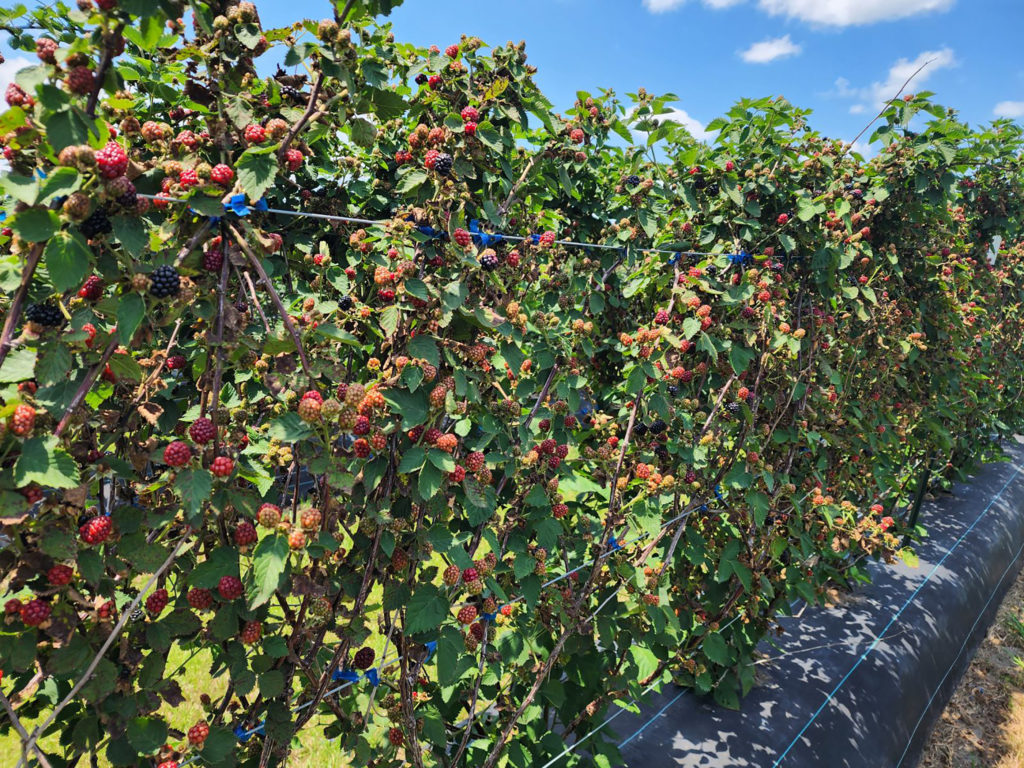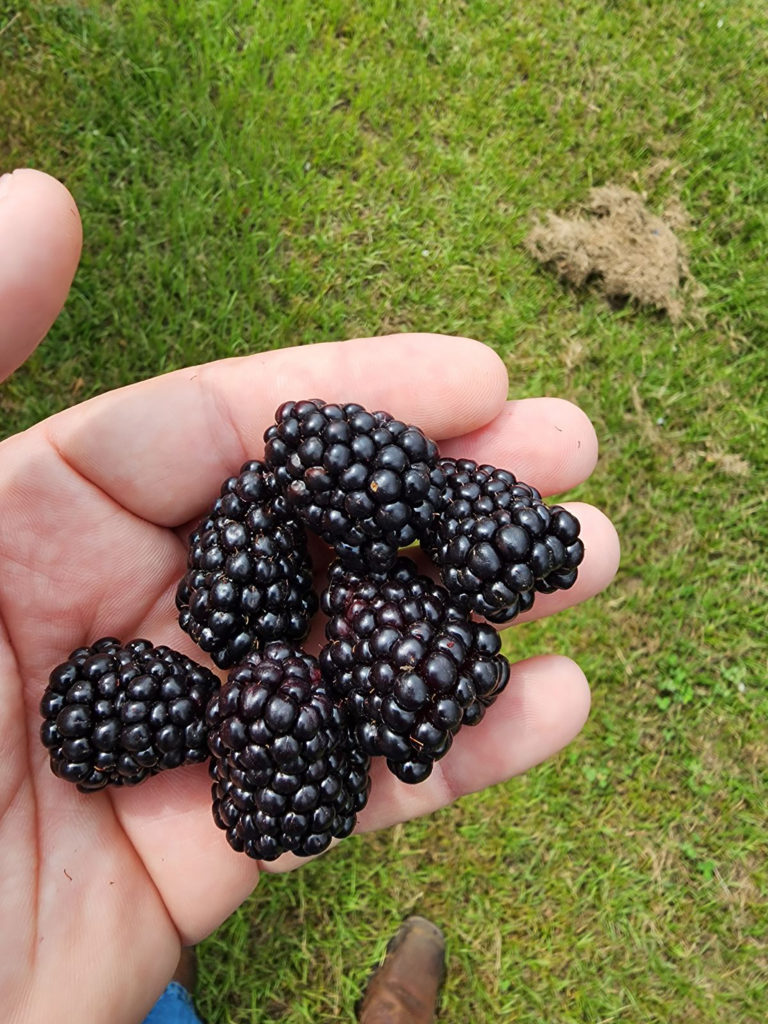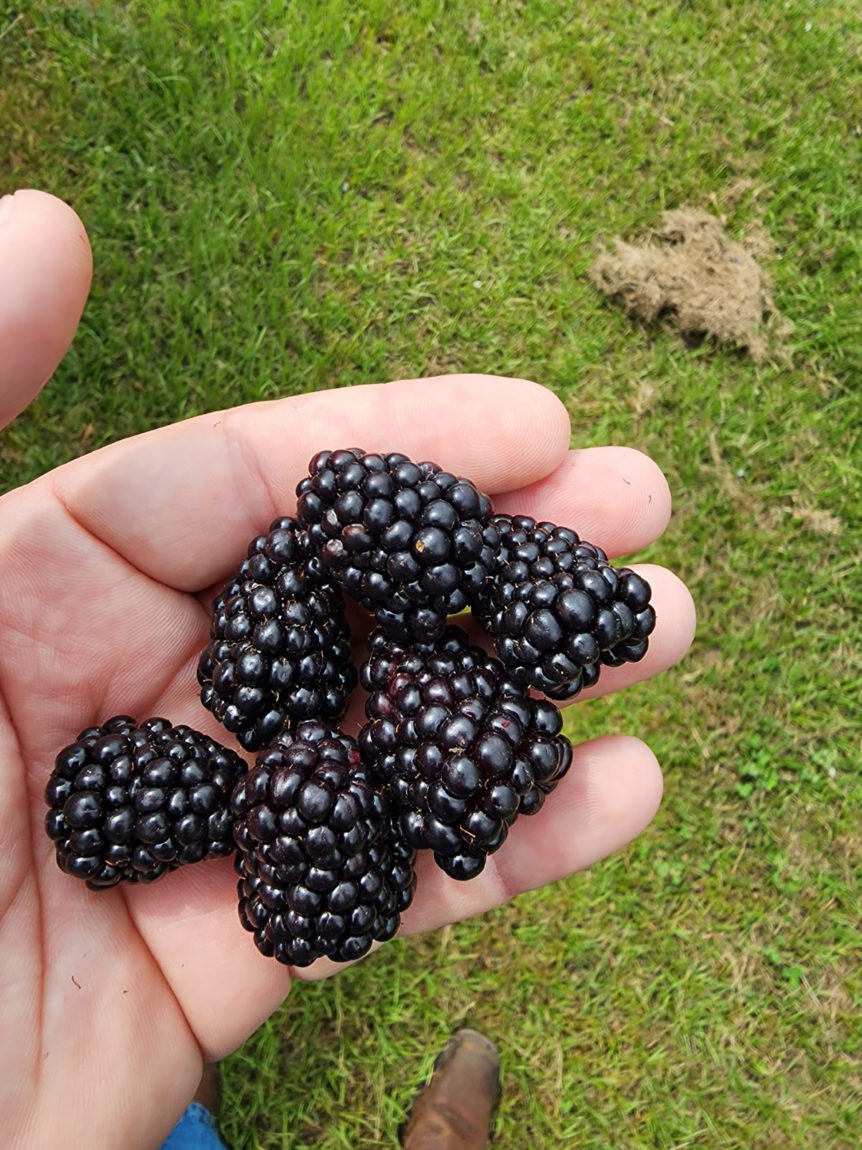
By Clint Thompson
Florida farmer Matt Parke is still new to the state’s blackberry industry. But that hasn’t stopped him from achieving significant production improvement from year one to year two. Another boost in production could lead Parke to potentially increase acreage in a couple of years.

“Once I get through this year and see how it goes and try to fine-tune the harvest and the quality, then we’ll explore more acres. We’re trying to baby-step it to make sure we can turn over a decent profit to pay for the investment,” said Parke, who produces 10 acres of blackberries. “For this area (Plant City) of Florida, that’s a lot. I’ve got a couple of buddies (in North Florida) that grow 30-plus acres. I would be apt to add another 10 to 15 acres here if it works out this year.”
Fine-Tuning the Production Process
Parke, farm manager of Parkesdale Farms, mainly grows strawberries. He has spent the last two seasons producing blackberries and experienced a significant uptick in production last year. He attributes his success to collaborating with scientists at the University of Florida Institute of Food and Agricultural Sciences (UF/IFAS) to manipulate the production process.
“It was definitely more profitable than the first year. We’re still fine-tuning it. We figured out how to trick the plants into getting the chill hours to be able to produce enough to make it profitable,” Parke said. “Here in Central Florida, we don’t get the chill hours required to make plants flower good, so you’ve got to figure out how to trick them into thinking they’ve got enough cold to produce. We shut them off in October (with urea applications), got them to defoliate by January and the buds started swelling. It’s a learning curve still, honestly.”
An increase in profits was a key development for a farmer that wanted to expand his crop portfolio but do so in baby steps. Parke didn’t jump headfirst into an industry he knew very little about. It was a wise move on his part.
“I wanted to diversify a little bit. We didn’t plant too many acres of blackberries,” Parke said. “I could have planted more but I wanted the crop to prove itself before I made a bigger investment. It’s not a cheap investment up front. It’s not as much as blueberries, but it’s close.”
American-Grown Advantages
Parke’s production success came at just the right time to satisfy the cravings consumers have for locally grown blackberries. He says they are bigger and better than imported fruit.
“There’s a lot of demand for American blackberries. It’s still a growing commodity. But I think people have had such a bad taste in their mouths over Mexican blackberries, which are small and tart with not too much sugar in them,” Parke said. “When it comes to a U.S.-grown blackberry or raspberry, people are more apt to jump on them.”
Parke said he produces between 10 and 12 UF/IFAS varieties and three Arkansas varieties. He uses a broker to market them to Walmart, Sam’s Club and even to Canada.
“Everything I have is a real sweet berry. I would say 50% of them are abnormally big berries. They’re earlier, and their yields are heavier because of the fruit size,” Parke said. “Some of them almost actually taste like candy. They’ve got so much sugar in them.”
The secret to Parke’s success may also be his relentless pursuit to never be satisfied. That will continue with this year’s crop.
“Now I’ve got to fine-tune the way we’re picking and grading them. I’ve got another idea I’m going to work on this year. Instead of picking them in the clam shell, I’m going to pick them in the tubs and pack them out of those,” Parke said.










